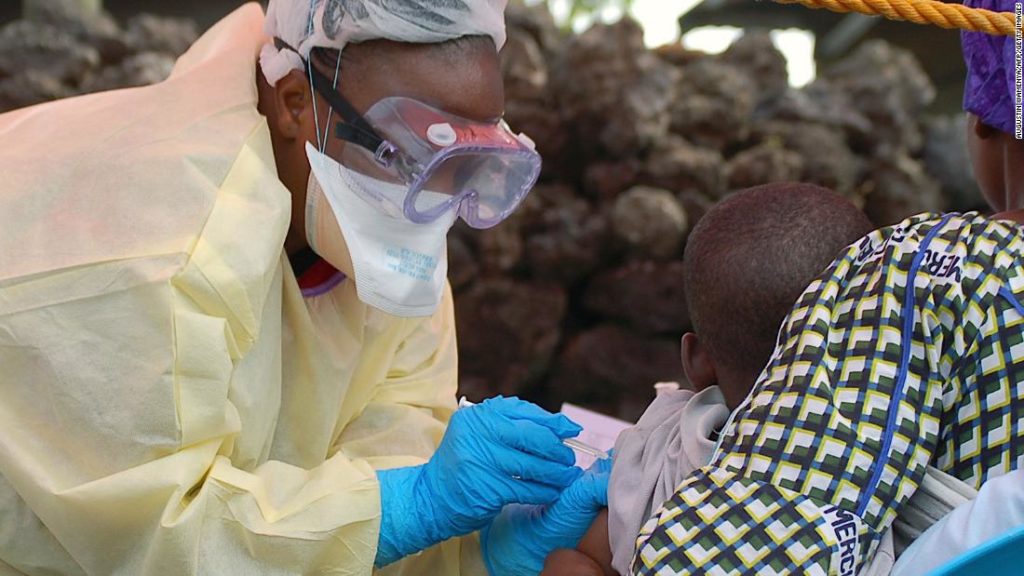The two outbreaks were geographically far apart, and genetic sequencing analysis confirmed they were unrelated.
Some places with high levels of infection were only accessible by boat or helicopter, which complicated the transportation and testing of lab samples, and delayed deployment of experts to the affected areas.
Health workers tried to counteract this fear by visiting local communities to increase their understanding of the virus. Local health workers and WHO experts visited more than 574,000 households, and vaccinated more than 40,000 people at high risk.
All the while, they had to adhere to Covid-19 restrictions and precautions such as wearing protective gear.
The WHO said it used a new cold chain freezer storage to keep the Ebola vaccine at extremely low temperatures for up to a week, allowing responders to vaccinate people in communities without electricity.
“Overcoming one of the world’s most dangerous pathogens in remote and hard to access communities demonstrates what is possible when science and solidarity come together,” said Moeti.
“Tackling Ebola in parallel with Covid-19 hasn’t been easy, but much of the expertise we’ve built in one disease is transferable to another and underlines the importance of investing in emergency preparedness and building local capacity.”
The virus
Ebola first appeared in 1976 in Sudan and the DRC, and gets its name from a river in the latter nation. It is one of the world’s most virulent diseases and is transmitted through direct contact with blood or other bodily fluids of infected people.
Ebola causes fever, severe headaches and in some cases hemorrhaging. It spreads through direct contact with bodily fluids or objects contaminated by someone ill with the disease. In some cases, the virus is spread through contact with someone who has died from the disease.
The virus enters the body through broken skin or mucous membranes in the eyes, nose or mouth. It can also spread through sexual contact.
Though the WHO celebrated the end of the Equateur outbreak, it also warned that there’s a risk the virus could re-emerge; the virus can persist in survivors’ body fluids for months, and is present in animals across the region.
“While the 11th outbreak is over, there is a need for continued vigilance and maintaining strong surveillance as potential flare-ups are possible in the months to come,” the organization said in the news release. “The end of this outbreak serves as a reminder that governments and partners must continue to focus attention on other emergencies, even as the fight against Covid-19 persists.”
You may also like
-
Afghanistan: Civilian casualties hit record high amid US withdrawal, UN says
-
How Taiwan is trying to defend against a cyber ‘World War III’
-
Pandemic travel news this week: Quarantine escapes and airplane disguises
-
Why would anyone trust Brexit Britain again?
-
Black fungus: A second crisis is killing survivors of India’s worst Covid wave

